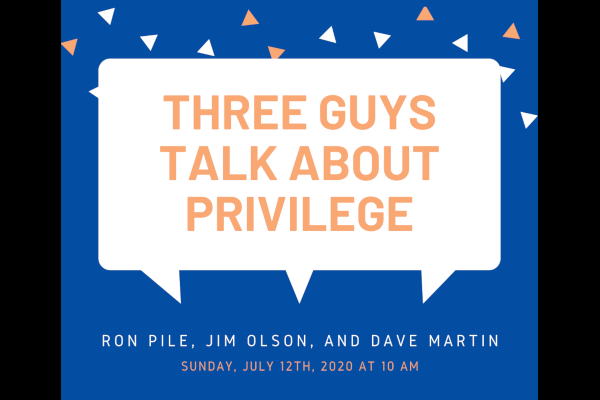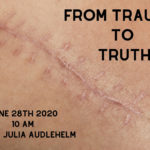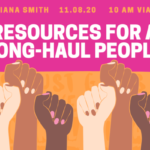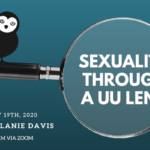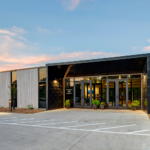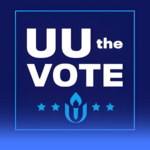Three Guys Talk About Privilege
Sermon by Jim Olson, Dave Martin, and Ron Pile
July 12, 2020
A transcript of the sermon follows the video.
Part 1: Jim Olson
Good morning, I am Jim Olson, the first of three white guys asked to reflect on white privilege today. Ours are some of the several voices sharing ideas and insights on racial justice this summer. As white men speaking about white privilege we are centering the experience of white people. I hope as we continue our difficult conversations and action that other points of view will be centered.
I was born into a life of white privilege. I was born and raised in southwest Minneapolis. There were no black people there while I was growing up. Even today my home zip code 55140 is 90% white and 2% black compared with 19% for the city as a whole. There had been a few black families in the neighborhood in the early 20th century but by 1940 white people had hounded them out.
I attended all-white schools and an all-white Methodist church. I never met a person of color until I attended college. There was no overt racism, but without any people of color in my life, race was an abstraction. Someone else’s issue.
Thus began a life of white privilege. It takes many forms:
- I can walk or drive in any neighborhood without fear;
- I can eat anywhere I want unlike a local black man I met a few years ago who said he felt there is no where he can eat in downtown Iowa City;
- I never had to worry that my son would get pulled over for driving while black, or profiled, or shot because of the color of his skin.
The greatest privilege is that until recently I did not feel compelled to combat racism. Oh sure, over the years, I have mostly said and sometimes done the right thing. I donate time and money to good causes; I volunteer and vote for progressive candidates. I have written some letters, signed some petitions, vigiled and marched. But always on my own schedule, at my convenience. I have never made a sacrifice or moved far out of my comfort zone.
So what am I to do about the white privilege? The best answer is to use the power of privilege to work in some small, meaningful way to promote inclusion and equality. I have decided to follow the lead of antiracists in our congregation and community and also to give special priority to voting – registering new voters, encouraging voter participation, and resisting voter suppression.
In addition, there is work to be done right here in our congregation. In her farewell sermon Rev. Diane Dowgiert listed our accomplishments over the past two years but then noted that “we didn’t get to go deeply into what it truly means to be anti-racist, anti-oppressive, and multicultural as a congregation.”
Our denomination has just released a report called “Widening the Circle of Concern” that examines racism and white supremacy culture within Unitarian Universalism. In looking at local congregations the report is very tough. It states that many UU congregations are in trouble. They have abandoned theological engagement with our principles and In the words of the report – and this is strong language — “our congregations often have the characteristics of elite social clubs rather than religious institutions.”
It concludes that the future of the movement requires congregations that are diverse, inclusive, and equitable. How does this report apply to UUS? Are we an elite social club? Are we open to asking whether white privilege and white supremacy culture exist here? Can we rise above white fragility? Can we explore these charged issues with mutual respect and love and affirm our covenant?
I pray that we can.
Part 2: Dave Martin
I am calling my talk today “my journey toward being woke”. Woke means “aware of and actively attentive to important facts and issues especially issues of racist and social justice.” I am not there yet.
As I begin my comments, I would like to share two sentiments I heard expressed at a General Assembly meeting a couple years ago. One of the sentiments was by a Latina woman who said, “if you are comfortable talking about race, you are not doing it right”.
Another sentiment was from a black woman talking about the events that happened in Charlottesville, Virginia in 2017. She was talking to a white friend about the events and the white friend said “I just don’t recognize my country any more” and this black woman responded to her: “I do. I have been telling you all this has been going on for a long time, but no one heard me.” Keep those thoughts in mind.
I grew up in a predominantly white suburb of Kansas City in the late 50’s early 60’s. We lived on the Kansas side and my father took my brother and I to see the Kansas City Athletics baseball team play (in Missouri) on numerous occasions. To get there, we had to drive through a predominantly black neighborhood to get to the stadium. It was a poor neighborhood, at least compared to the one I lived in.
I remember my father saying that he could not understand why these black folks did not take better care of the homes they were living in. Houses needed paint, repair, lawns mowed. My memory is that this was true. Houses were in disrepair. They were out on the lawns, talking, working cars, playing games. He thought they were lazy and did not work awfully hard.
I remember his words, but I wanted to get to the game, so I do not remember spending much time thinking about it. As I grew up, I knew persons of color in college and in the Army and in my professional work that were not lazy and worked extremely hard. I learned there are lots of white folks who are lazy and do not work hard.
Fast forward many years later. I learned about the concept of red lining. A red line was informally drawn around certain neighborhoods. No blacks allowed. A little light bulb went off—those folks that my father talked about could not get a loan from a bank to begin with and even if they could have they could not buy property in certain parts of town (like the part of town I grew up in).
That to me is a perfect example of white privilege. Redlining went on all over the country including here in Iowa. Just a couple of weeks ago there was an article in the DMR talking about redlining in the Des Moines area and how it has affected creation of wealth in poor communities.
I was reminded of it again when I started attending the meetings of our Racial Justice Study and Action group led by Alison Oliver. Early on we began talking about white privilege, black lives, white supremacy, racist thoughts and we had some fascinating discussions as some of us were trying to work our way through some “uncomfortable” issues.
So what came up for me is this—I am driving in my car and I see another car coming at me or pull up beside me and it’s a really nice car-very expensive or more expensive that I can afford and I think that’s a nice car; would be nice to own and drive. That is what comes up if there is a white person driving the car. And If I see a person color driving that fancy and expensive car—what comes up from somewhere in my subconscious is: how can that person make enough money to buy a car like that. I have had that thought numerous times over the years until I recognized it for what it was—a racist thought.
In the mid 80’s here in Iowa City, we were able to move from a small house in the Longfellow neighborhood to a larger home. My next-door neighbor at the time told me that he hoped I did not sell my house to a POC—he used a more derogatory term. I told him I would sell to whomever I pleased, and it was none of his business. I wish I had taken the time to have a more in-depth conversation with him.
And now it is 2020 and we are really talking about “black lives matter” again in a deeper way than before. You all may remember that 3 or 4 years ago the racial justice group bought BLM signs and wristbands for those who wanted them. We gave out a lot of signs and wrist bands. I wore my wristband for a couple of years and in all that time only one person thanked me for wearing it– a Latino man.
The response I got from people in this congregation and outside was typically “don’t all lives matter?” My response at the time was of course they do; the fact I support BLM does not mean I do not think all lives matter. In some cases, it was an opportunity to have a discussion. But a lot of people noticed the wristband and chose not to say anything.
Now it seems to me there is a shift. My answer now is “All lives do not matter until black lives matter.” That to me is a new understanding of what is going on.
In closing, these words from a statement put out by the faith leaders of the Johnson County Interfaith Coalition (to which UUS belongs):
“We are committing ourselves to anti-racist work and we encourage all, even those who consider themselves already sensitive to the issues, to listen anew. We ask white people to listen without being defensive to what our neighbors of color are telling us. We all need to commit ourselves to new growth”.
Thanks.
Part 3: Ron Pile
Good morning. I’m Ron Pile, and I’m honored to be with you.
So, we’re talking this morning about privilege. White privilege in particular, due to the circumstances of our times, but of course there are many different kinds of privilege.
And talking about privilege is good. I hope some of you take something useful from today’s service. But it seems to me that a bunch of – let’s face it – mostly white people, sitting around talking to each other about racism has serious limitations when it comes to making progress toward easing the problems facing communities of color.
I don’t want to denigrate any of the work done by various committees and groups here at UUS, but ultimately, if all we do is sit in meetings and talk amongst ourselves about our privilege, nothing will change.
It seems to me that too often, UUS tries to problem-solve from a distance. This results is what has become known as “optical allyship,” which is one version of “virtue signaling” where we tell ourselves how woke we are without having to actually DO anything.
Bryan Stevenson, the author of the book “Just Mercy,” speaks about proximity. He says, “…if you are willing to get closer to people who are suffering, you will find the power to change the world…You cannot be an effective problem-solver from a distance. There are details and nuances to problems that you will miss unless you are close enough to observe those details.”
One of my attempts to get close enough to observe the details takes the form of volunteering at Inside Out Reentry Community, which you heard about in the introduction for today’s offering. Also, for about the last six years, until the pandemic shut things down, I was going into the Oakdale Prison as part of an informal writers’ workshop where incarcerated men and outside participants all workshop our various writing pieces together.
A project that came out of that workshop was a spoken-word poetry event at the prison which was conceived and organized by the incarcerated men. It’s been held several times now. Unfortunately, the one scheduled for this spring had to be cancelled, but I hope they will continue when it’s safe to do so. They call this event “Speak Your Truth.” As a participant in the Writers’ Workshop, I was asked to contribute a poem to read at the event.
That forced me to seriously consider the question, “What is my truth?” Peg has asked me to read that poem this morning so here it is.
This is my truth. It’s called “I Am Blessed.”
I Am Blessed
I am blessed to be white . . . My best fortune delights those dressed all in white who might invite me to fight to make America great again. But my gains are painful when they constrain the people who work harder than me, who are smarter than me, but whose larder is subject to confiscation, to subjugation. My good fortune is lost when they’re torching their cross on the porches of people who don’t look like me. Yes, I am blessed…
I am blessed to be straight . . . It’s a trait that equates to a date in the open without fear of a jeer or a cut-rate debate about who I should mate with or who rates a sneer or a smear from a hater who caters to the fear of people who don’t love like me. Yes, I am blessed…
I am blessed to be male . . . I avail myself of opportunities in the community of males with immunity from being called frail or lacking ingenuity which is a tale that’s been told through the ages by male sages in pages and pages of stale lunacy to keep the wages to themselves with impunity, and away from people who are different than me. Yes, I am blessed…
I am blessed . . . I have privilege . . . The drivel that straight, white, males tell themselves – those great trite tales that uncivil actions are caused by the factions of those who are not like me – they mask the real story, they invent the glory of the straight white male. And cover the gory trails of the tribulation of the delineation of our nation into people who are just like me . . . and people who are not.
I won’t apologize for the facts of my birth, It’s just that the guys that give rise to the lies of their worth, imply that the only people of worth are people who look like me, who love like me, who are just like me.
That’s my truth.
